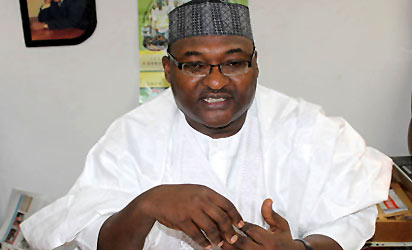The Nigerian Shippers’ Council (NSC) has called on the Maritime reporters to create a forum where government agencies and the critical stakeholders in the industry should be brought to render account of their stewardship in the industry.
The Executive Secretary of the Nigerian Shippers’ Council, Mr. Hassan Bello who made this call in Lagos on Tuesday at a one day Media Perspective Forum on the Nigerian Shippers’ Council as the Ports’ Economic Regulatory stated that by this the press would make it mandatory for people and agencies to be focused on why they were set up.
According to him,” they should be asked what contribution they have made, what association they have made in trying to bring out their mandate either statutorily or otherwise. I think the press should create a forum whereby the agencies are called and they are answerable for critical questions which are not asked in offices or somewhere private but as a forum. I think the more we are subjected to tests from the press, the more we are able to perform our duties”.
Bello while recalling that the quality of reports being carried by the maritime reporters was nothing to write home about however observed that the quality of reports coming out from the maritime reporters now have been deemed to be worthy of the council’s attention.
“However, I think you have to take it a bit higher in the sense that you have to do something with the volume of information that you have. You have to ask critical questions and these critical questions have to do more with the economy rather than with any other consideration”, he said.
Speaking on the slide in the oil price, the NSC boss harped on the need for the Federal Government to diversify the nation’s economy stressing that the maritime industry could provide a veritable alternative to the oil in the nation’s economy.
He said,” this industry is becoming exceptionally critical because of the volatility of where we put all our eggs in that basket. We are having problems with the oil prices and what have you. The need to diversify the Nigerian Economy could not be even more important than now”.
“We have seen this and we think that the maritime industry could provide important contribution to the Nigerian economy, so that sector must be looked at and efforts must be geared up in that direction especially by the press so that this thing is done”.
He further said that it was not in the council’s interest for it to be isolated as the ports’ economic regulator adding that the critical function of regulating the nation’s ports needed collaboration from the relevant stakeholders for it to succeed.
“We need to have stakeholders’ collaboration and stakeholders and players in the port system are as varied as they are spread across the whole chains of the port operation. If one link is weak, you find the whole issue collapse”.
“That is why it is important for us to navigate, call for close collaboration from stakeholders because the Nigerian Shippers’ Council don’t represent an interest but the interest of the global economy and the Nigerian economy especially”, Bello stated.
Earlier in his speech, the Chairman of the Ports Consultative Council (PCC), Otunba Kunle Folarin called on the council to work towards meeting the stakeholders’ expectations which he said was key to the mandate that the council have by their Act and other regulations that has followed after the Act.
Otunba Folarin who double as the Chairman of the event advised NSC to create its own brand of service delivery pointing out that there was the compelling need to establish the Nigerian Shippers’ Council equipped by the traditional culture of service delivery so as to show areas of core competence as well as the policies of the council in the delivery of its mandate and much more others.
“Therefore, the constituency, the stakeholders are looking up to you to deliver on this important policy. It is legal that you do this within the ambience of the law or ask for more enabling laws that will allow you to discharge. I will ask you to strike strategic alliances with the major agencies and stakeholders so that when you deliver your mandate, it will be a lot of gains and less pain. But of course, there will be no gain without pain”, he said.

